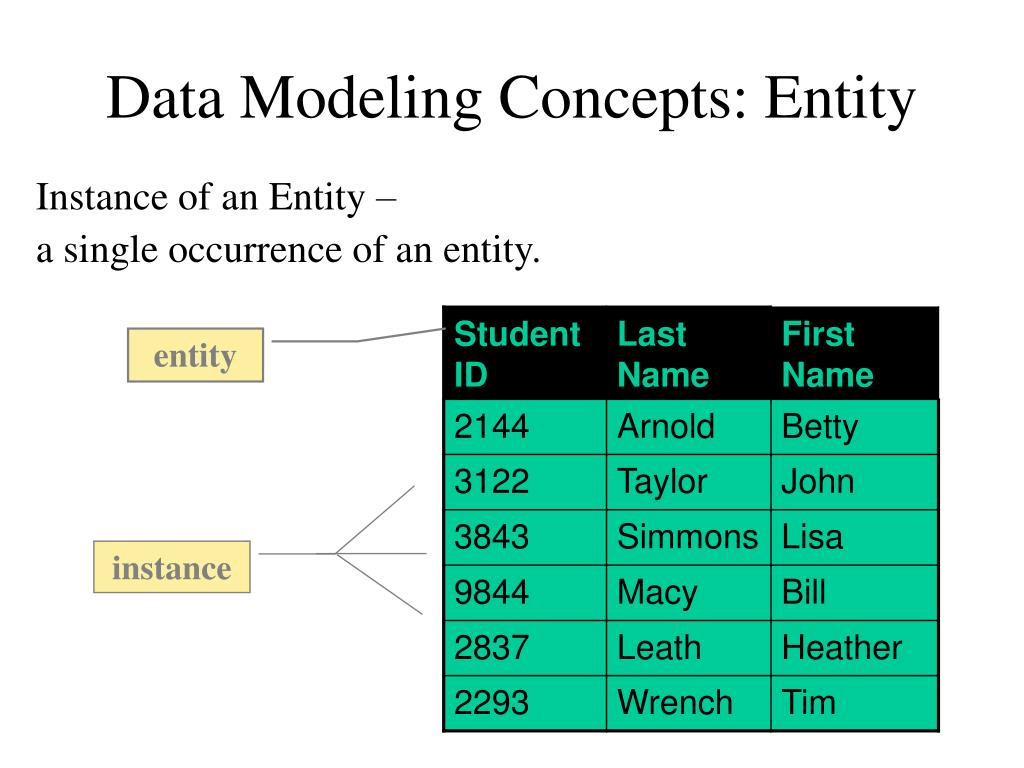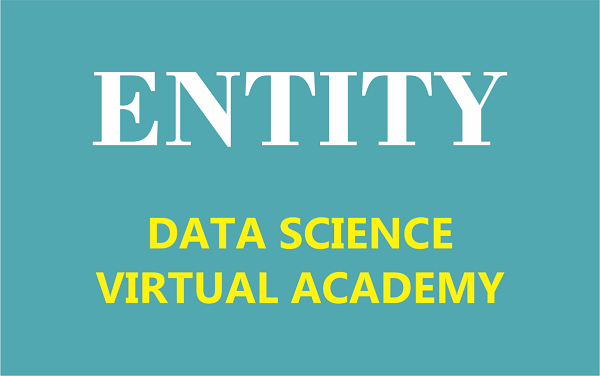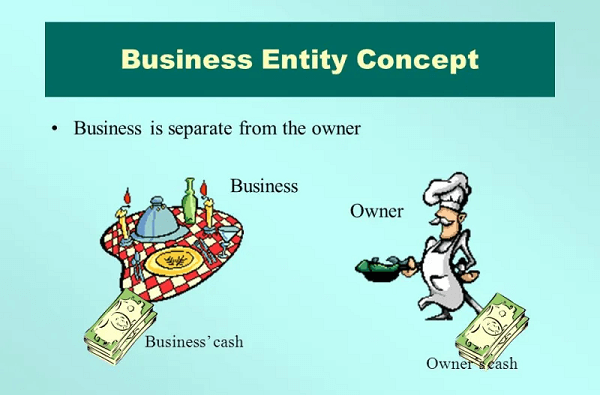Entity DefinitionAn entity is a distinct and separate thing with an independent existence, whether a physical object, a concept, or a legal entity. It is a cornerstone of several disciplines, including philosophy, mathematics, computer science, and business. 
In philosophy, an entity is defined as any existence that has an independent and separate existence. It might be something tangible, a notion, a thinking, or even a feeling. Concrete and abstract entities can be divided into two major groups. Concrete entities are physical objects that can be observed, touched, or experienced, while abstract entities are non-physical and cannot be observed or experienced. In mathematics, an entity is anything that exists and can be studied mathematically. Mathematics elements can be concrete or abstract and are usually represented as symbols or equations. An entity in computer science has a distinct identity and can be controlled by a computer program. In object-oriented programming, a class represents an entity, which defines its properties and behaviors. Entities in computer science are often used to represent real-world objects or concepts. In business, an entity is a separate and distinct organization with its legal and financial status. A business entity can be a corporation, partnership, LLC, sole proprietorship, or other legal structure. An organization has legal rights to make agreements, own property, and bring or receive legal action. 
In linguistics, an entity is a linguistic unit that refers to a specific object, person, or concept in the world. An entity can be represented in a sentence by a noun or pronoun. For example, in the sentence "John bought a car," "John" and "car" are both entities. Studying entities in linguistics is important for understanding how language represents the world and how we communicate about objects and concepts. In ontology, an entity is an object or concept that has a defined existence and can be identified and named. Ontology studies the nature of existence and the relationships between objects and concepts. In ontology, entities can be classified into different categories based on their properties and relationships. For example, a tree is an entity that belongs to the category of living things, while a rock is an entity that belongs to the category of non-living things. In artificial intelligence and machine learning, the idea of an entity is also crucial. In these fields, entities represent objects and concepts, and algorithms identify and classify entities based on their properties and relationships. Entity identification is a crucial problem in computer vision and natural language processing, where algorithms recognize and extract items from text or pictures. The entity is a fundamental concept used in various fields to represent objects, concepts, or organizations with distinct and separate existences. Entities can be physical or abstract, concrete or conceptual, and classified into different categories based on their properties and relationships. Studying entities is important for understanding the nature of existence, language, and relationships between objects and concepts. It is crucial in various fields, including philosophy, mathematics, computer science, linguistics, ontology, and artificial intelligence. An entity is a fundamental concept that describes anything with an independent existence. The concept of entity is essential in various fields and is crucial in understanding the nature of existence and relationships between different objects or concepts. Philosophical Concept of EntityIn philosophy, an entity is defined as any existence that has an independent and separate existence. It could be a physical object, a thought, a concept, or even an emotion. Entity theory is a cornerstone of ontology, the area of philosophy concerned with the study of existence. Ontology explores the nature of existence, what exists, and how things exist. Ontology divides entities into the two basic categories of tangible and abstract. Concrete entities are physical objects that can be observed, touched, or experienced, such as a tree, a car, or a person. On the other hand, abstract entities are non-physical and cannot be observed or experienced, such as a thought, concept, or number. 
It cannot be observed, touched, or experienced in the physical world, but it exists in the world of mathematics. Similarly, the concept of love is an abstract entity. It cannot be observed or experienced physically, but it is an idea in people's minds. In philosophy, the concept of entity is also related to identity. Identity alludes to the special characteristics that characterize and recognize an entity from different substances. For instance, a tree has a one-of-a-kind identity that recognizes it from different trees. Similarly, a person has a unique identity that distinguishes them from others. Mathematical Concept of EntityIn mathematics, an entity is also defined as anything that can be studied mathematically. Entities in mathematics can be concrete or abstract, just like in philosophy. However, in mathematics, entities are usually represented as symbols or equations. 
For example, the number 5 is an entity in mathematics. It can be represented by the symbol "5". Similarly, the equation "y = x + 3" is also an entity in mathematics. It represents the relationship between two variables, x, and y. In mathematics, entities are frequently used to express connections between several things or concepts. A graph, for instance, can be used to show how two variables are related. The graph is an entity that represents the relationship between the variables. Computer Science Concept of EntityA computer program can control an entity, a type of object in computer science with a distinct identity. In object-oriented programming, a class represents an entity, which defines its properties and behaviors. 
For example, in a game, a player is an entity that a computer program can control. A class represents the player, which defines its properties, such as health, strength, and speed, and behaviors, such as moving and attacking. Entities in computer science are often used to represent real-world objects or concepts. For example, a database can store information about entities, such as customers or products. The database represents real-world entities and allows them to be manipulated by a computer program. Business Concept of EntityIn the business world, an entity is a separate and distinct organization with its legal and financial status. It is a fundamental business concept used to define an organization's legal structure. Business entities are typically formed to carry out specific business activities and are recognized by law as separate from their owners or shareholders. Different forms of business entities exist, and each has advantages and drawbacks of its own. Sole proprietorships, partnerships, corporations, and limited liability companies (LLCs) are the most prevalent business entities. A sole proprietorship is a company whose ownership and management is limited to one person. It is the easiest and most typical corporate entity, and it's also straightforward to set up and run. However, as the owner is personally responsible for all of the company's debts and responsibilities, their assets might be in danger if the company is sued or unable to pay its bills. 
An organization is a business entity possessed and worked by at least two individuals. In an organization, the accomplices share the benefits and misfortunes of the business, and each accomplice is responsible for all obligations and commitments of the organization. There are a few kinds of organizations, including general associations, restricted associations, and restricted obligation organizations. An organization owned by shareholders and run by a board of directors is known as a corporation. Because it is a separate legal entity from its owners, they are not personally responsible for the corporation's debts and responsibilities. Although corporations are more difficult to establish and manage than sole proprietorships or partnerships, they have several benefits, including permanent existence, restricted liability, and the opportunity to acquire money by issuing stocks. An LLC is a mixture of business entities that combines a corporation's obligation protection with an organization's tax breaks. In an LLC, the proprietors are called individuals, and they have restricted responsibility for the obligations and commitments of the business. An LLC can be burdened as an organization or a corporation, contingent upon how things are structured. The entity concept in the business world refers to a separate and distinct organization with its own legal and financial status. Business entities are recognized by law as separate from their owners or shareholders and are formed to carry out specific business activities. Choosing the appropriate entity form is crucial for any business owner since there are several types of business entities, each with pros and cons.
Next TopicPlastic Definition
|
 For Videos Join Our Youtube Channel: Join Now
For Videos Join Our Youtube Channel: Join Now
Feedback
- Send your Feedback to [email protected]
Help Others, Please Share










